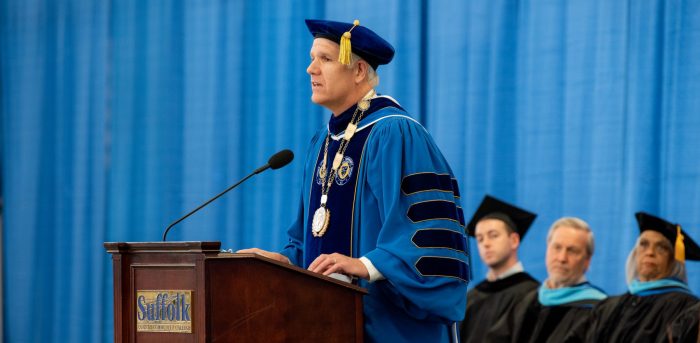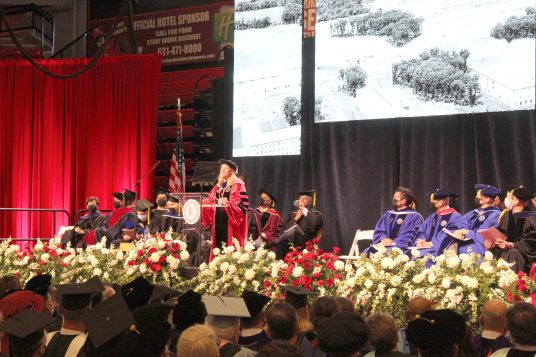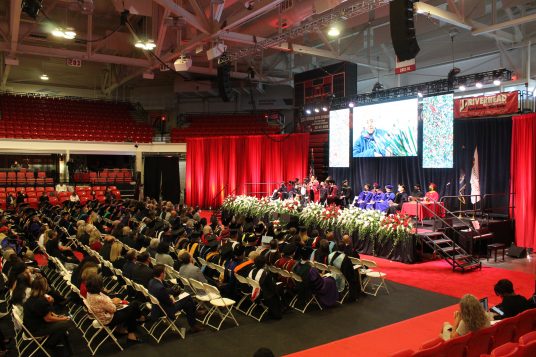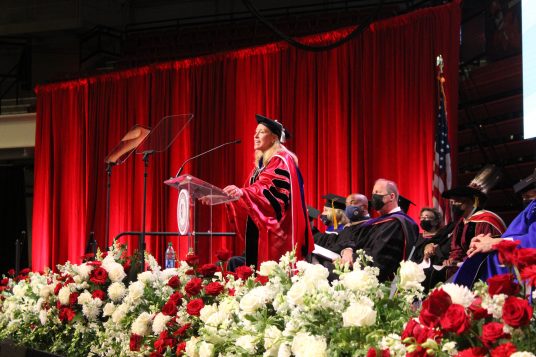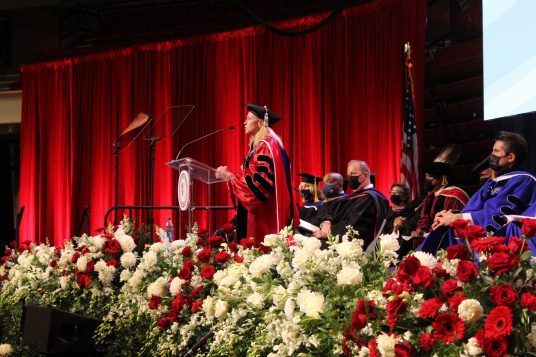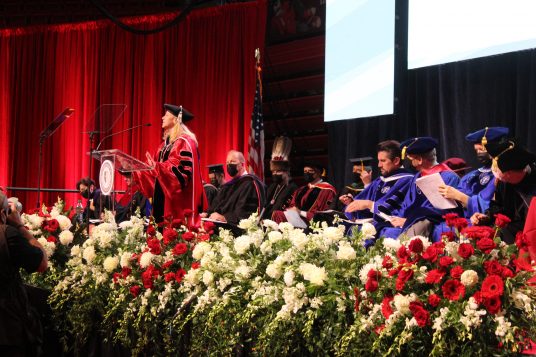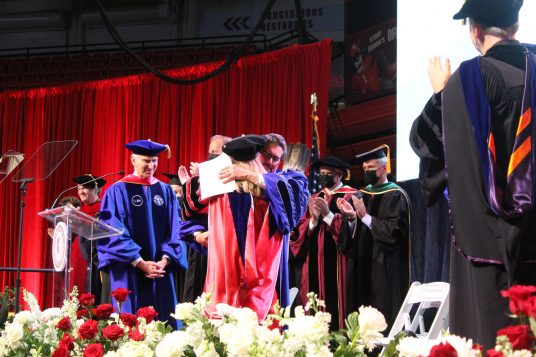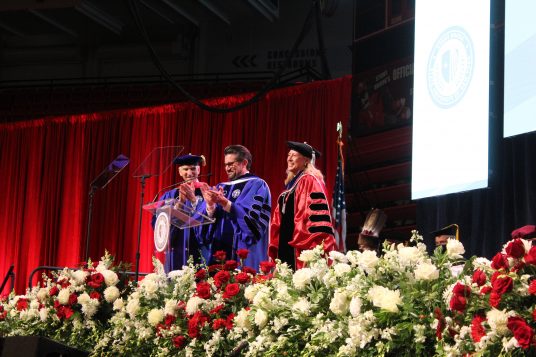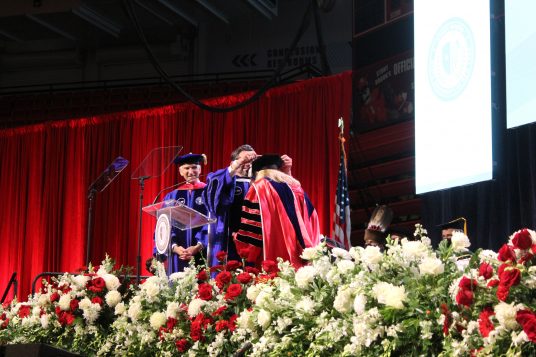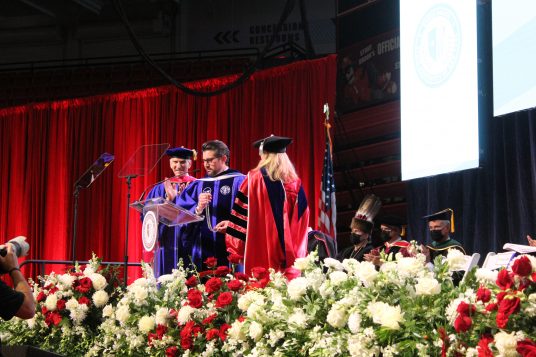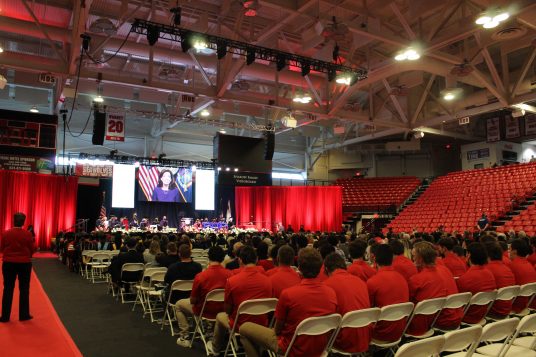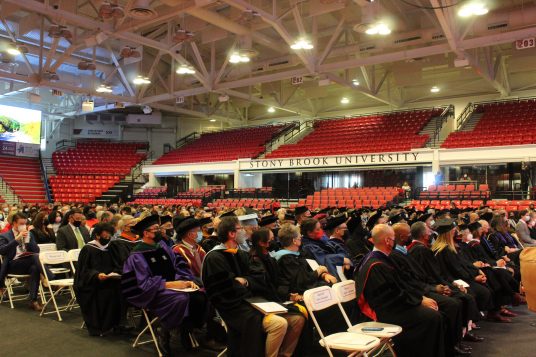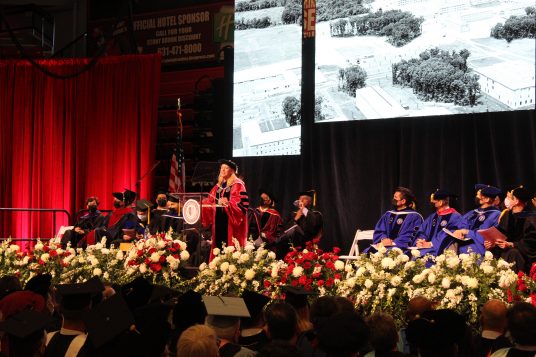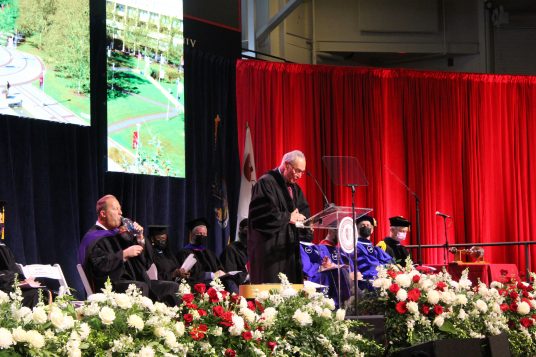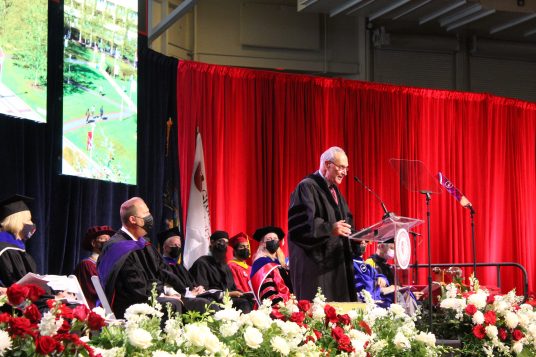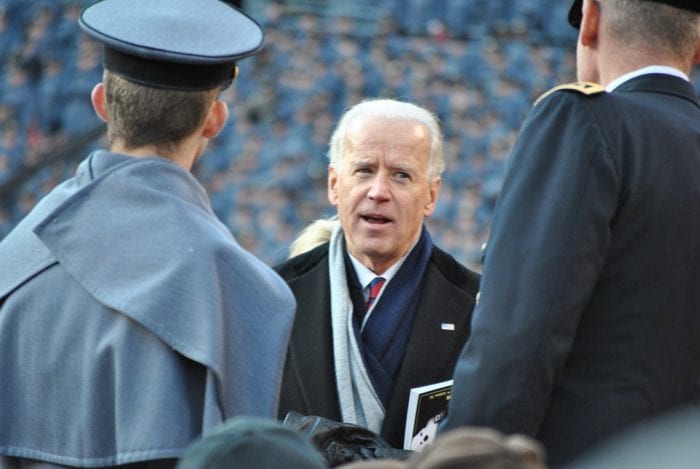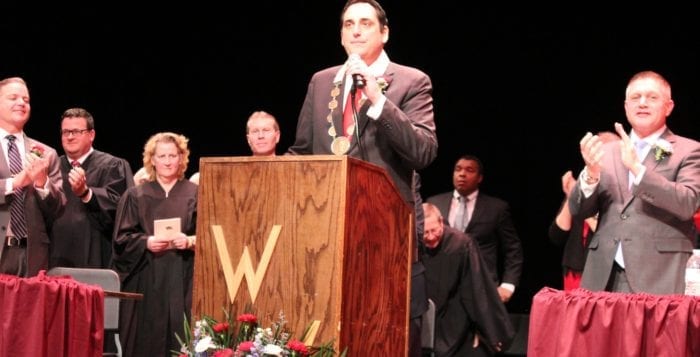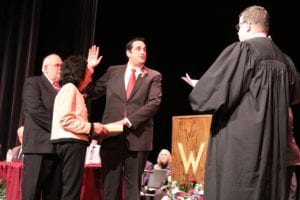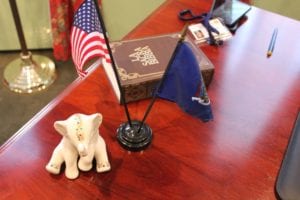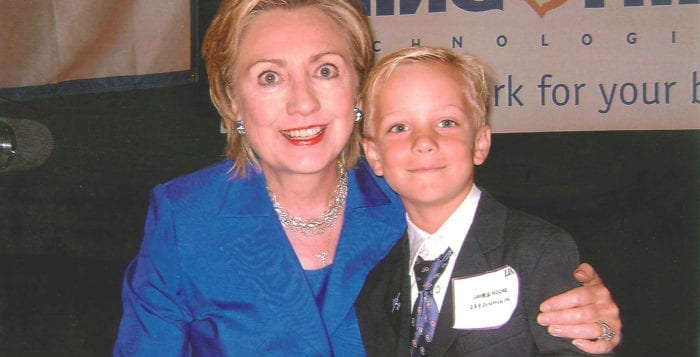Last Friday, April 8, Edward Bonahue was sworn in as the seventh president of Suffolk County Community College.
During his inaugural address, Bonahue outlined his vision of higher education in Suffolk County and the direction he intends to steer the college throughout his tenure as president.
“It is a career-defining honor to stand with you today and to accept the deep privilege and tremendous responsibility of serving as the seventh president of Suffolk County Community College,” he said. “For this Long Island boy, the child of, and also brother to, lifelong Suffolk County educators, the opportunity to join with all of you in service to Suffolk County is a dream come true and a prayer answered.”
“We honor and commend the work performed by generations of caring college employees, faculty and staff who could choose to do anything, who could choose to work anywhere, but who have chosen this work.”
— Edward Bonahue
A place in history
Bonahue detailed the history of SCCC since the time when it was founded in 1959 as just a small college of about 500 students. Back then, classrooms had to be borrowed from Sachem and Riverhead high schools. The president likened the population growth of Suffolk County with the development and advancement of the community college.
“Those first students came from a growing county with about 600,000 residents,” he said. “Today, Suffolk County is home to over 1.6 million residents, representing a far-more diverse population, and our annual college enrollment exceeds 20,000 students.” He continued by saying, “We honor and commend the work performed by generations of caring college employees, faculty and staff who could choose to do anything, who could choose to work anywhere, but who have chosen this work, to work here and to embrace this mission of fostering student development, promoting a culture of lifelong learning, and ultimately serving the community we live in.”
Reflecting upon the resiliency of the campus community during the COVID-19 pandemic, Bonahue said that the college found new and innovative ways to continue the educational process through virtual learning. In a time of profound uncertainty and despair, he said SCCC did not shrink away from its academic mission.
“Especially in the early days of the pandemic, many of us worked around the clock just to manage a virtual continuity of operations,” he said. “We all learned that our community college students were often those most likely to have been impacted by the pandemic.” Discussing ways students and staff responded, Bonahue added, “We worked with a sense of urgency, but also pragmatic flexibility, knowing that our students’ progress, sometimes even their well-being, rested on our ability to adapt to constantly shifting conditions.”
Meeting the community’s needs
“We own that the work of education is complicated, but the college embraces this as a critical duty.”
— Edward Bonahue
During the address, Bonahue articulated the important role that SCCC plays within the Suffolk community. He said the institution’s mission is to provide quality, affordable higher education and to promote health and prosperity throughout the county.
“We know that we are a critical part of the formula for supporting our community and changing students’ lives,” Bonahue said. “Specifically, the essential mission of our college, the necessity of providing an affordable, inclusive education, of providing a pathway of opportunity, has never been more critical.” He added, “For all of Suffolk County, I have this simple message: Suffolk County Community College is Long Island’s own pathway to educational and economic success.”
Bonahue considers an educated populace necessary for community wellness. “We own that the work of education is complicated, but the college embraces this as a critical duty because we know that an educated population is an essential good for our society and our nation.”
The president suggests that democracy also requires an engaged citizenry. He said one of the priorities of the college is to keep its students informed and involved in the democratic process.
“One of our commitments to students is to foster a sense of citizenship and civic engagement,” he said. “We acknowledge that teaching about the rights of democracy, its many individual freedoms, the privilege of self-determination, must also be accompanied by teaching about the responsibilities of citizenship, including service to the community and the country, the rule of law, appreciation for the power of diversity, and the willingness to speak and act in defense of our freedoms.” He stressed, “This kind of general education for all students is critical because through it, students come to understand not only the rights and responsibilities of being an American, but also a sense of the world they live in.”
“The students’ experience is the reality of the college.”— Edward Bonahue
Serving all students
Bonahue delivered his general vision for the college. He affirmed the college “will continue its commitment to serve all students, regardless of background or previous experience in higher education.”
He said the college must continue to promote inclusion of all students, regardless of their circumstances: “We know that the future of the college means embracing the part-time student, the working student, the parenting student, as well as those who come to us straight out of high school.”
Additionally, Bonahue embraced the nonconventional programs of study which complement the curriculum offered by the college. “We affirm that as a comprehensive community college, career training, workforce development and economic development are integral and fundamental parts of our mission,” he said, adding, “We are proud of our thousands of students who move annually through our arts and sciences programs, graduate from our honors programs and often transfer to highly selective universities. We are equally proud of our nurses, our welders, our bakers, programmers, our paramedics, our machinists and our accountants.”
During the speech, Bonahue advanced that student experience is the impetus behind his work: “The students’ experience is the reality of the college, and we will keep that truth at the center of how we carry out our mission of student success from day-to-day, from semester-to-semester and from year-to-year.”
The president touched upon the many financial challenges that students may face while pursuing a higher education. He acknowledged that there are still too many people left out of the education system due to the burden of cost.
“Because the cost of education still too often puts it out of reach for deserving students, we affirm our commitment that a Suffolk education must remain an affordable education,” Bonahue said. “The work of our college foundation as a vehicle for supporting student scholarships and basic needs allows any of us and all of us to invest in our students.”
To access the full speech, click here.

